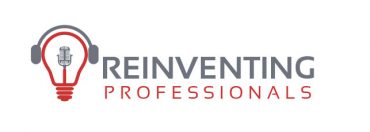For a recent Reinventing Professionals podcast, I spoke with Paul Giedraitis, a Principal at Axiom Consulting Partners, and the founder and President of Orgaimi, a client intelligence platform for law and accounting firms, about the importance of harnessing the power of your firm’s data.
Jump to:
- How do you align your work as a Principal at Axiom Consulting Partners with your leadership of Orgaimi?
- Why is client intelligence important for law firms?
- How are law firms leveraging client intelligence today?
- What sources of data are most valuable for law firms and legal professionals?
- How does Orgaimi take advantage of artificial intelligence and machine learning?
- How can law firms begin to harness the power of their data?
- How do you see the use of data intelligence evolving in law firms?
- What will you be discussing at the 2022 ILTA Conference?
Ari Kaplan: Tell us about your background and the genesis of Orgaimi.
Paul Giedraitis: I started my career as an electrical engineer in the defense industry working with Northrop Grumman Corporation, and mostly doing classified military projects in imaging and radar. After the Great Recession of 2008, there were budget cuts in the Pentagon and in the defense industry generally, so a bunch of engineers changed roles and I was determined to become a high-frequency trader. A friend was working in options trading in Chicago and he persuaded me to start a company with him that used trading technology and data analytics to create novel types of financial products. I have been a serial entrepreneur since then and have co-founded three companies in the past decade.
Orgaimi is my latest startup and comes out of the work that I have been doing with Axiom Consulting Partners over the last four years. Orgaimi is a client intelligence platform that uses artificial intelligence and machine learning to help law firms grow their client revenues, prevent client churn, and improve cross-collaboration.
How do you align your work as a principal at Axiom Consulting Partners with your leadership of Orgaimi?
PG: Axiom hired me to bring better data analytics, machine learning and AI capabilities to empower and grow our professional services practice. Our team leverages advanced data analytics for our law firm clients and it has been my responsibility to launch a startup within the consultancy that harnesses the analytics work our team has performed on consulting projects and transform that work into a standalone software platform and product company. Orgaimi emerged over the past several years as a result of this effort.
Why is client intelligence important for law firms?
PG: Client intelligence gives law firms a huge competitive advantage in the marketplace. We like to say that if a large firm with 1,000 attorneys and tens of thousands of clients uses data to retain and grow their client base, that this can easily be a 10x return on investing in a product like Orgaimi or in an advanced analytics program. For larger firms, that can result in tens of millions of dollars of additional revenue in a given year. In addition, from a cultural standpoint, lawyers are very busy delivering projects, many firms do not have an established sales function, and practices tend to be fairly siloed. Since they do not necessarily share collective information about how to optimally serve an account and grow revenues within a client portfolio, client intelligence facilitates the sharing of that information. While the legal profession has recently experienced record-setting performance in terms of client growth and profitability, there may be new headwinds from a potential recession and increased inflation, so it is critical now for law firms to focus on maintaining and growing their client relationships.
How are law firms leveraging client intelligence today?
PG: One way is by helping partners to prioritize client relationships. Since a practice group leader or a legal marketing support team could be responsible for hundreds of different key client accounts that are important … they need to allocate their time and resources appropriately.
Another way is connected to revenue growth by identifying the prospective needs of existing clients and highlighting new services that a firm could sell or other ways to add value.
Finally, strong intelligence helps to prevent client churn by highlighting the behaviors and journeys within the client’s history that could create risk and result in a client leaving the firm. It considers communication patterns, billing history and staffing allocation, among other criteria, as signals that indicate a potential risk or opportunity in the client relationship.
What sources of data are most valuable for law firms and legal professionals?
PG: At Orgaimi, we focus on finance and billing data as a core data asset because firms tend to curate that information well since it relates directly to how they make their money. It also creates a really interesting map over time about what services clients are buying, who’s working with whom, and the most common configurations of teams that support client delivery. HR and employee data can also be valuable in terms of the team construction and the skills and experiences of the participating individuals.
Evaluating CRM and email intelligence is where law firms have historically lagged largely because of time constraints. Lawyers do not have time to enter lots of information into a CRM, though new technology is making it a lot easier for that data to be made stronger and richer. Orgaimi uniquely combines finance and revenue intelligence with data about client relationships, communication patterns with clients, and sales activities to develop a complete picture about each account. We are also seeing the integration of external data sources into CRM and revenue systems to further enhance that view and provide revealing insights.
How does Orgaimi take advantage of artificial intelligence and machine learning?
PG: Orgaimi is able to learn from prior firm data that reveals certain characteristics of clients that lead to specific client outcomes. Many firms do not realize that financial, HR and communications data has predictive value and allows teams to forecast the results of certain activities. Orgaimi has predicted client growth events or other developments based on historical data with over 80% accuracy. This allows consumers of the intelligence to better manage client accounts by identifying risks and opportunities that exist today, to help improve the overall health of client relationships.
How can law firms begin to harness the power of their data?
PG: We find that law firms feel like they need to spend a lot of time on big data cleanup projects — such as installing a new CRM or financial management system, or building a data warehouse or a data lake where they can integrate data sources into a single repository from which to run reports and gather analytics. As a result, many firms believe they need to wait until their “data house” is in order to leverage advanced analytics. This is a mistake because firms can wait forever and never see value from their data because it is always in flight. The best thing firms can do is to simply begin right away by harnessing the power of the data that is currently available and start measuring whatever they can to understand the drivers of different business outcomes.
Ultimately, once you can prove ROI with even limited data at a very small scale with a small group of stakeholders, that justifies scaling up and investing more resources in cleaning data and building broader analytics initiatives.
How do you see the use of data intelligence evolving in law firms?
PG: Many law firms are adopting business intelligence programs, developing their own dashboards and producing custom reports for their decision-makers, but stakeholders have become overwhelmed by these details. There are just too many reports, charts and data points. So, the question becomes one of focus and finding simple ways to distill information into actions that a team with limited time can take. As a result, firms are using data intelligence to simplify how insights are consumed, which is a philosophy that Orgaimi embraces.
At the organizational level, firms are increasingly hiring new roles such as chief data officers and chief analytics officers to work with heads of innovation and top leaders to accelerate growth through data intelligence.
I have also seen the focus in some firms shifting from a traditional emphasis on financial reporting toward more interest in people intelligence, including measuring employee skills and experience, workplace collaboration, and diversity, equity and inclusion.
What will you be discussing at the 2022 ILTA Conference?
PG: I have a session on Tuesday, August 23, called “Building a Legal Metrics Program to Measure Business Outcomes and Demonstrate Value,” in which we are going to discuss best practices for building a legal metrics program, and how to avoid the common mistakes that can limit value creation. We are also going to share a range of dashboards that help showcase different use cases and how firms can effectively visualize data. We really want attendees to experience the art of the possible. My co-presenters are David Hobbie, Director of Knowledge Management at Goodwin, Rico Burnett, the Global Director of Innovation at Exigent Group, and Eyal Iffergan, Managing Director of Hyperion Global Partners.
Ari Kaplan regularly interviews leaders in the legal industry and the broader professional services community to share perspective, highlight transformative change, and introduce new technology on his Reinventing Professionals podcast. Listen to his conversation with Paul Giedraitis here.
Illustration ©iStockPhoto.com
Subscribe to Attorney at Work
Get really good ideas every day for your law practice: Subscribe to the Daily Dispatch (it’s free). Follow us on Twitter @attnyatwork.


















